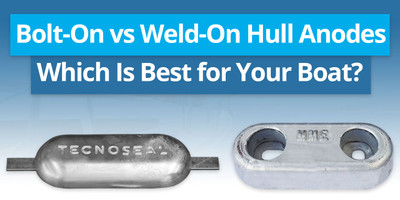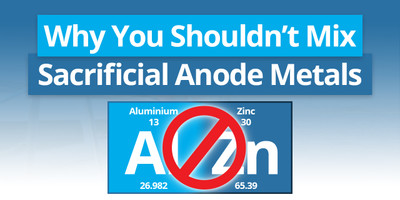Bolt-On vs Weld-On Hull Anodes: Which Is Best for Your Boat?
17th Sep 2025
Protecting your boat from corrosion is one of the most important aspects of hull maintenance. Sacrificial anodes, often made from zinc, aluminium or magnesium, play a vital role in this process by cor
… Read Full Article























